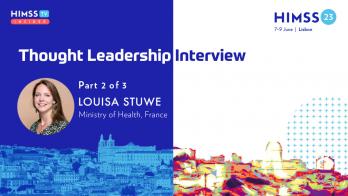Artificial Intelligence
The FDA-cleared and CE-marked image analysis software helps providers diagnose and monitor patients with neurological conditions.
Lynne Chou O'Keefe, founder and managing partner of Define Ventures, tells MobiHealthNews what characteristics of a company are essential to garner investment.
A reduction in clinical note taking leads to better outcomes for both patients and physicians facing burnout, says CEO Dr. Anthony Mazzarelli.
The company says it will infuse generative AI and large language models across the breadth of its AwareCDI product suite to streamline physician administrative burdens and to help hospitals and health systems capture more earned revenue.
It also looks to expand the application of the AI model to predict a patient's length of hospital stay.
Deploying the model with EHR data could help address cancer patient navigator burnout. The process could be scaled to serve all oncology patients in need, a retrospective simulation study showed.
Clinicians at Outbreaks Near Me, an initiative of Boston Children’s Hospital, say that remarkable findings from their new research on artificial intelligence points to its growth potential in healthcare. They unpack more of the survey here.
By expanding DAX Express, hosted in Microsoft's Azure OpenAI, into EHR workflows, the goal is to reduce "what used to be hours of time for clinical documentation to mere seconds," says one CIO.
Instead of spending time searching through training libraries, UNC Health team members can quickly access references that streamline their administrative burdens by leveraging OpenAI services on Microsoft Azure.
Applying the AI model could improve the speed to care for critically ill patients by almost two days, resulting in better patient outcomes and shorter hospital stays, say USC researchers in a new study.













3a81.jpg)












